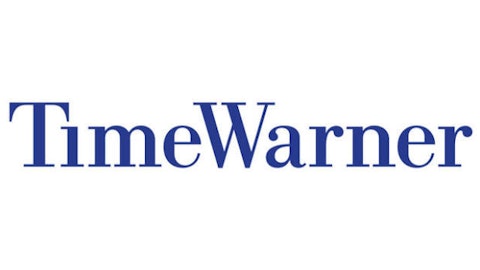Apple Inc. (NASDAQ:AAPL) is up to its old tricks, trading significantly lower with the broader market. On Monday, Jefferies’ Peter Misek cut his target from $420 to $405 due to weaker demand during his iPhone channel checks. Regardless of this call, Apple is still trading illogically and is showing similarities to Netflix, Inc. (NASDAQ:NFLX) back in 2011 – thus, I believe that it will eventually become Microsoft Corporation (NASDAQ:MSFT).
The Market’s New Netflix
While Netflix, Inc. (NASDAQ:NFLX) had risen 215% over the last year, it is always beneficial to reminisce of the past, and then learn from those experiences. Looking back, Netflix crashed from $300 to $60 in just over four months. It was the decision to break the company’s services into two separate businesses (streaming & DVD rental) that led to this decline.
The market did not respond well to Netflix, Inc. (NASDAQ:NFLX)’s decision to raise prices, nor has the market responded well to a new look Apple Inc. (NASDAQ:AAPL). The world’s largest tech company has slowly, but surely, transitioned itself from a hyper-growth tech stock to a company with steady growth.
Sure, the company has made some mistakes along the way: including slower than expected product innovations and a sloppy iPhone 5 launch (which led to the decline) – but as with Netflix, Inc. (NASDAQ:NFLX), such overreactions usually end favorably for the stock.
The Second Coming Microsoft
Apple Inc. (NASDAQ:AAPL) is trading at less than seven times earnings (minus cash), and it is highly unlikely that Apple will maintain such a deep discount to the overall market (S&P 500 trades at 15 times earnings). Much like Netflix, Inc. (NASDAQ:NFLX) has eventually recovered as a new but slower growth business, Apple will almost certainly do the same.
Apple still has double digit growth, so if we consider that its growth is twice that of competitor Microsoft Corporation (NASDAQ:MSFT) it should give us a fair idea of valuing the company.
Both Microsoft and Apple Inc. (NASDAQ:AAPL) have similar operating and profit margins, return on equity and assets, and similar dividend yields. Therefore, I am using sales and earnings as the basis of valuation. Microsoft Corporation (NASDAQ:MSFT) is currently trading at 3.65 times sales and 17 times earnings.
If we grant Apple Inc. (NASDAQ:AAPL) with the same metrics, then it would launch its market capitalization between $620 billion (sales) to $675 billion (income). Therefore, if we use the mean of these two valuations, then it is logical to assume a $650 billion market capitalization, or a price close to $700, is possible.
Final Thoughts (Completing The Netflix Comparison)
Right now, it might sound crazy to consider Apple Inc. (NASDAQ:AAPL) a $700 stock – but investors should remember that when Netflix was $60 there weren’t too many people with a $200 price target. In a sense, Apple has become the new Netflix, Inc. (NASDAQ:NFLX) and even trades like it.
After Netflix, Inc. (NASDAQ:NFLX)’s massive fallout, it bounced higher to $125. The stock then fell back to $60 where it traded for three months before beginning its trend higher. With Apple, it fell to a low of $385, bounced higher to $465, and now we are seeing it trade at $400. With that said, might we see a period of flat trading before a larger move higher? Personally, I think we could see the same trend, and I think it is extremely sensible to conclude that Apple Inc. (NASDAQ:AAPL) will soon trade higher until reaching a level that is closely matched with Microsoft.
In my opinion, one of the market’s greatest faults is that it lives in the moment, not learning from trends or events of the past. In my book, I consider this point, and explain how value investors can benefit from this irrational behavior. To me, Apple is a clear example of irrational behavior at its best. Based on the information in this article, I think it is one of the best and safest value investments in the market.
The article How Should You Trade the Most Controversial Stock in the Market originally appeared on Fool.com and is written by Brian Nichols.
Brian Nichols owns shares of Apple. The Motley Fool recommends Apple and Netflix. The Motley Fool owns shares of Apple, Microsoft, and Netflix. Brian is a member of The Motley Fool Blog Network — entries represent the personal opinion of the blogger and are not formally edited.
Copyright © 1995 – 2013 The Motley Fool, LLC. All rights reserved. The Motley Fool has a disclosure policy.






